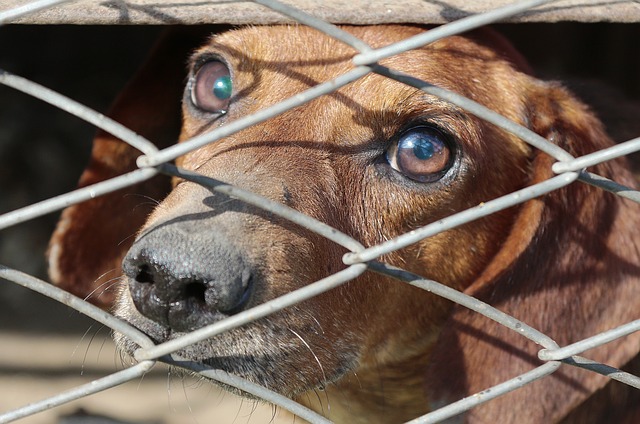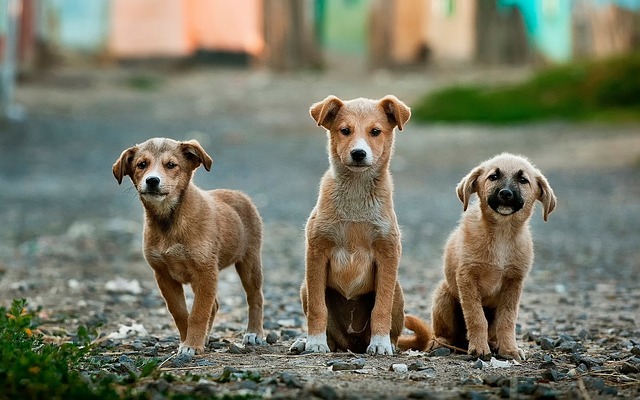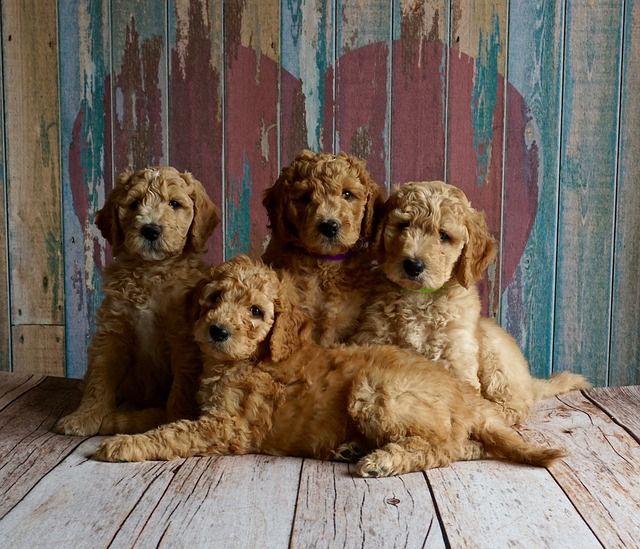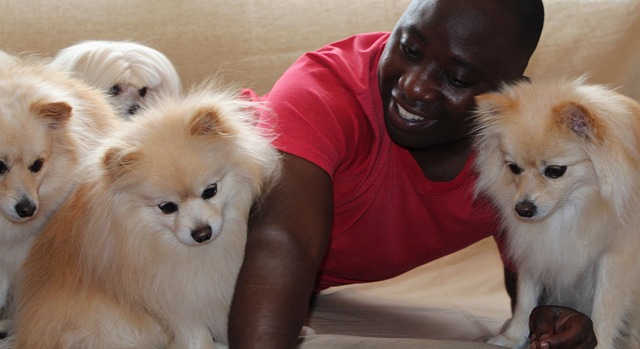Maybe you’re looking for a purebred puppy, or you already have a pooch that you think may have been bred in a puppy mill. Perhaps you’ve been advised to seek out a “reputable breeder,” but you’re not exactly sure what that means. While pet stores are notorious for being supplied by irresponsible puppy mill breeders, there are lots of other ways unsuspecting animal lovers might be accidentally supporting these unethical businesses.
Not only are puppy mill dogs — and cats — born and raised in abysmal conditions, they often have lasting health problems that plague them for the rest of their lives. While it may be tempting to take home a sickly animal to “save” it from one of these horrendous mills, don’t — you’re just supporting an unethical business. Instead, check out the Human Society of the United States’ puppy mill FAQ’s, and report the facility here.
If you’re wondering whether a pup might be from a puppy mill, the 10 signs below may give you your answer.

1. The puppies are from out-of-state
No, we’re not referring to rescues who get transported from emergency situations and into safe shelters in different cities. We’re talking about pet stores or online suppliers who get their “stock” from “breeders” who are out of the area. Sure, you might find a reputable breeder who has the litter you want a few states away, and that’s okay; just make sure to visit and familiarize yourself with this AKC responsible breeder checklist. Puppies who are “shipped” from an unknown location should always raise concerns (more below).
2. They were purchased online
As mentioned above, a puppy purchased online could be from anywhere. Oftentimes, they’re shipped across the country or even from overseas, in poor conditions that lead to life-long health problems… or worse.
To clarify, we’re not talking about shelter or rescue dogs whose profiles are posted online; these good causes are just giving their pooches publicity, and adopters have to meet the puppers in person, anyway!
3. The puppies are being adopted out too young
In order to make sure they’re healthy, socialized, and generally off to a good start, puppies shouldn’t be adopted out until they’re at least 8 – 12 weeks old. In order to make more money, puppy mill sellers churn out pets as quickly as they can, and that means selling them when they’re too young.

4. The seller asks you to meet somewhere besides where the puppies are being raised
Oftentimes, sketchy sellers will ask buyers to meet them in a public place, like a park or parking lot. If they don’t want you to see where the litter was born, is being raised, or meet the pups’ parents, they are probably hiding something.
5. You go to the facility – but it’s filthy
This one seems obvious, but in the midst of their excitement, unknowing buyers may think rooms filled with cages and mess is “just how it is.” If a facility seems cramped, filthy, smells terrible, or just doesn’t seem right, trust your instincts. Likewise, the pets should be clean, groomed, well-fed, and generally happy. Dirty facilities aren’t the “norm” — you may be visiting a puppy mill.
Report potential puppy mills, and you could be saving hundreds of lives, both present and future.

6. The seller offers several different breeds
True responsible breeders are so careful and thorough, they focus on producing litters from one, maybe two breeds at a time. A seller that offers puppies in several different breeds is almost definitely re-selling or mass-producing them — and probably in a mill-type facility.
7. The pup’s parents are a mystery
If the seller can’t tell you who the parents are — or you can’t meet them — this is a major red flag. The “breeder” can even be a middleman who is selling puppies that they got from somewhere else. A responsible breeder will be able to answer questions about the mom and dad’s temperaments and medical histories.
8. The breeder has multiple litters available at any given time
As mentioned, caring breeders focus on lovingly raising a litter at a time. If you contact someone who has multiple litters born with multiple more on the way, they could be “mass-producing” puppies… and that’s never a good thing.

9. The puppies are unvaccinated
Puppy mill sellers who only care about making a profit won’t waste their finances on giving pups their shots. While a newly-bought pup from a good breeder may not be completely vaccinated, they should be properly inoculated for their age.
10. There’s no paperwork involved in the transaction
Reputable breeders will likely supply, as well as have you sign, some important paperwork. If the seller doesn’t provide you with any, or doesn’t require your signature on an agreement, you should be wary.
For starters, breeders should be able to give buyers legitimate documentation of pedigree. To be on the safe side, make sure they have an American Kennel Club (AKC) logo on it. You should also be supplied with an application to register your dog with the AKC, and the papers should come with the price of the dog (they should not cost extra).
What’s more, many responsible breeders have their adopters sign a contract promising to spay/neuter and provide the pup with necessary medical care. They may also present an agreement that says if the arrangement doesn’t work out, they’ll receive the pup back (so it doesn’t end up in a bad home or shelter). This is because they truly care about each and every dog, and want to make sure the pups end up in loving homes.

For more tips, check out the American Kennel Club’s article on finding a responsible breeder.
